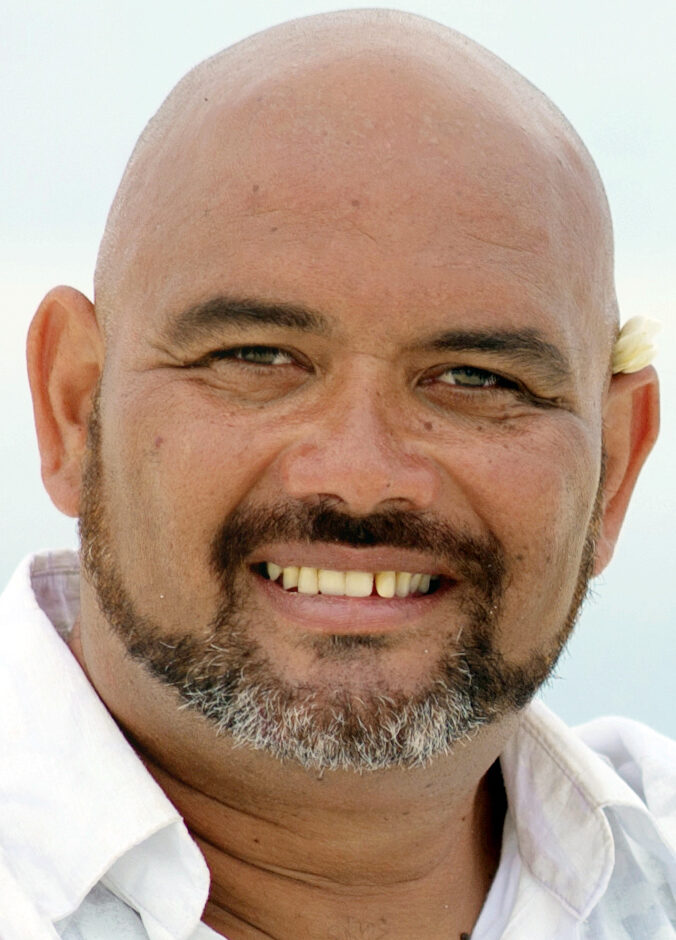Thomas Wynne: The price of leadership
Saturday 18 May 2024 | Written by Thomas Tarurongo Wynne | Published in Editorials, Opinion

Thomas Wynne.
Anyone who has worked with leaders has, at some stage, met head on the challenge of conflicting values, voice, or worldview with their own, writes Thomas Tarurongo Wynne.
This complexity often arises from the collision or intersection of professional, ethical, and or personal beliefs. Navigating these waters requires a delicate balance of diplomacy, integrity, and pragmatism, and without this challenge, I do believe, one is unfit to lead or to serve. If we wait for the perfect leader, perfect partner, perfect Pastor or government, it will be a long wait at the end of a lifetime of cold disappointment and unmet potential.
Because if we cannot manage the diplomacy of that inner struggle, how then can we manage the diplomacy of external struggles be they local, regional or international.
Often it has become clear to me, now working for a number of government leaders, the complexity of their own broken humanity is a constant buffer, pressing against all they achieve, and in the end, when the accolades have gone, the audience left the auditorium and the well wishers and naysayers have retreated to their homes, leaders are left with themselves.
And it is in those moments of quiet reflection, I have been privileged to see them – and in those moments – understood the complexity and sanctity of those moments.
Leadership is not for the fainthearted. It’s not for those who have it all figured out or whose lives are perfectly ordered. However, it is for those who are ready to lead despite all they are, and in making that decision, they lead. Of course, it’s then up to us to decide whether their qualities inspire us to follow – both because of who they are and in spite of their shortcomings.
Leadership, I have come to understand, is a sacred function, it is an extension of a leader’s life but it is not all that defines them. We often read in leaders’ memoirs about the internal struggles they faced – struggles so intense, like waves crashing upon the reef of their souls daily or weekly, that most of us would never have guessed or considered them.
Moana poet and scholar Epeli Hau‘ofa noted, “We are the sea, we are the ocean. Oceania is us,” and in these words, Hau‘ofa captured so well the deep interconnectedness and collective strength inherent in Moana communities, that nothing is done in isolation, nothing is done that does not affect us and it is this climate change within that we must all wrestle with, especially if we work for those that lead.
In a world that has lost respect for authority based on whether they believe they deserve it or not, we haven’t confronted the clash between this view and our Pe’u Maori worldview of power. In the Pe’u Maori tradition, positions of power pass from bloodline to bloodline, with little regard for an individual’s ability or readiness to lead. Often, I think our view of power traditionally has transferred in part to how we sit it in government, with bloodlines leading our country, heads of ministries and our churches.
But it is the complexity of these unfolding relationships that offer profound opportunities for our own personal growth and ethical strength, reminding us that true leadership often lies in the ability to navigate and bridge these challenges. And if we aspire to lead this valley, this internal climate change is one we must cross, as has every leader done before us.
As former prime minister of the Cook Islands and outgoing Pacific Islands Forum Secretary General, Henry Puna, finishes his term at the helm of the largest and most influential post in the Moana, I am forever grateful for the opportunities he afforded me, to work with him and for him and our country. His leadership reached across to me despite many hurdles’ others said should not and could not be crossed. For that reason, it is easy for me to maintain both publicly and privately, that he remains the greatest diplomat our country has had and we have a lot to be proud of in his role as former leader of our country and leader of the region that we call Moana Nui a Kiva.














































